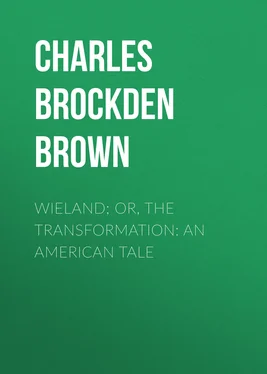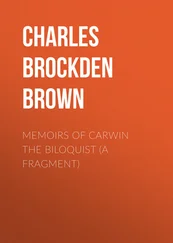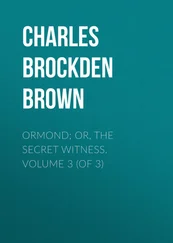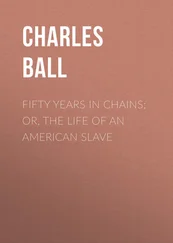Charles Brown - Wieland; Or, The Transformation - An American Tale
Здесь есть возможность читать онлайн «Charles Brown - Wieland; Or, The Transformation - An American Tale» — ознакомительный отрывок электронной книги совершенно бесплатно, а после прочтения отрывка купить полную версию. В некоторых случаях можно слушать аудио, скачать через торрент в формате fb2 и присутствует краткое содержание. Жанр: foreign_prose, foreign_antique, на английском языке. Описание произведения, (предисловие) а так же отзывы посетителей доступны на портале библиотеки ЛибКат.
- Название:Wieland; Or, The Transformation: An American Tale
- Автор:
- Жанр:
- Год:неизвестен
- ISBN:нет данных
- Рейтинг книги:3 / 5. Голосов: 1
-
Избранное:Добавить в избранное
- Отзывы:
-
Ваша оценка:
- 60
- 1
- 2
- 3
- 4
- 5
Wieland; Or, The Transformation: An American Tale: краткое содержание, описание и аннотация
Предлагаем к чтению аннотацию, описание, краткое содержание или предисловие (зависит от того, что написал сам автор книги «Wieland; Or, The Transformation: An American Tale»). Если вы не нашли необходимую информацию о книге — напишите в комментариях, мы постараемся отыскать её.
Wieland; Or, The Transformation: An American Tale — читать онлайн ознакомительный отрывок
Ниже представлен текст книги, разбитый по страницам. Система сохранения места последней прочитанной страницы, позволяет с удобством читать онлайн бесплатно книгу «Wieland; Or, The Transformation: An American Tale», без необходимости каждый раз заново искать на чём Вы остановились. Поставьте закладку, и сможете в любой момент перейти на страницу, на которой закончили чтение.
Интервал:
Закладка:
Pleyel, like his new friends, was fond of music and poetry. Henceforth our concerts consisted of two violins, an harpsichord, and three voices. We were frequently reminded how much happiness depends upon society. This new friend, though, before his arrival, we were sensible of no vacuity, could not now be spared. His departure would occasion a void which nothing could fill, and which would produce insupportable regret. Even my brother, though his opinions were hourly assailed, and even the divinity of Cicero contested, was captivated with his friend, and laid aside some part of his ancient gravity at Pleyel's approach.
Chapter IV
Six years of uninterrupted happiness had rolled away, since my brother's marriage. The sound of war had been heard, but it was at such a distance as to enhance our enjoyment by affording objects of comparison. The Indians were repulsed on the one side, and Canada was conquered on the other. Revolutions and battles, however calamitous to those who occupied the scene, contributed in some sort to our happiness, by agitating our minds with curiosity, and furnishing causes of patriotic exultation. Four children, three of whom were of an age to compensate, by their personal and mental progress, the cares of which they had been, at a more helpless age, the objects, exercised my brother's tenderness. The fourth was a charming babe that promised to display the image of her mother, and enjoyed perfect health. To these were added a sweet girl fourteen years old, who was loved by all of us, with an affection more than parental.
Her mother's story was a mournful one. She had come hither from England when this child was an infant, alone, without friends, and without money. She appeared to have embarked in a hasty and clandestine manner. She passed three years of solitude and anguish under my aunt's protection, and died a martyr to woe; the source of which she could, by no importunities, be prevailed upon to unfold. Her education and manners bespoke her to be of no mean birth. Her last moments were rendered serene, by the assurances she received from my aunt, that her daughter should experience the same protection that had been extended to herself.
On my brother's marriage, it was agreed that she should make a part of his family. I cannot do justice to the attractions of this girl. Perhaps the tenderness she excited might partly originate in her personal resemblance to her mother, whose character and misfortunes were still fresh in our remembrance. She was habitually pensive, and this circumstance tended to remind the spectator of her friendless condition; and yet that epithet was surely misapplied in this case. This being was cherished by those with whom she now resided, with unspeakable fondness. Every exertion was made to enlarge and improve her mind. Her safety was the object of a solicitude that almost exceeded the bounds of discretion. Our affection indeed could scarcely transcend her merits. She never met my eye, or occurred to my reflections, without exciting a kind of enthusiasm. Her softness, her intelligence, her equanimity, never shall I see surpassed. I have often shed tears of pleasure at her approach, and pressed her to my bosom in an agony of fondness.
While every day was adding to the charms of her person, and the stores of her mind, there occurred an event which threatened to deprive us of her. An officer of some rank, who had been disabled by a wound at Quebec, had employed himself, since the ratification of peace, in travelling through the colonies. He remained a considerable period at Philadelphia, but was at last preparing for his departure. No one had been more frequently honoured with his visits than Mrs. Baynton, a worthy lady with whom our family were intimate. He went to her house with a view to perform a farewell visit, and was on the point of taking his leave, when I and my young friend entered the apartment. It is impossible to describe the emotions of the stranger, when he fixed his eyes upon my companion. He was motionless with surprise. He was unable to conceal his feelings, but sat silently gazing at the spectacle before him. At length he turned to Mrs. Baynton, and more by his looks and gestures than by words, besought her for an explanation of the scene. He seized the hand of the girl, who, in her turn, was surprised by his behaviour, and drawing her forward, said in an eager and faultering tone, Who is she? whence does she come? what is her name?
The answers that were given only increased the confusion of his thoughts. He was successively told, that she was the daughter of one whose name was Louisa Conway, who arrived among us at such a time, who sedulously concealed her parentage, and the motives of her flight, whose incurable griefs had finally destroyed her, and who had left this child under the protection of her friends. Having heard the tale, he melted into tears, eagerly clasped the young lady in his arms, and called himself her father. When the tumults excited in his breast by this unlooked-for meeting were somewhat subsided, he gratified our curiosity by relating the following incidents.
"Miss Conway was the only daughter of a banker in London, who discharged towards her every duty of an affectionate father. He had chanced to fall into her company, had been subdued by her attractions, had tendered her his hand, and been joyfully accepted both by parent and child. His wife had given him every proof of the fondest attachment. Her father, who possessed immense wealth, treated him with distinguished respect, liberally supplied his wants, and had made one condition of his consent to their union, a resolution to take up their abode with him.
"They had passed three years of conjugal felicity, which had been augmented by the birth of this child; when his professional duty called him into Germany. It was not without an arduous struggle, that she was persuaded to relinquish the design of accompanying him through all the toils and perils of war. No parting was ever more distressful. They strove to alleviate, by frequent letters, the evils of their lot. Those of his wife, breathed nothing but anxiety for his safety, and impatience of his absence. At length, a new arrangement was made, and he was obliged to repair from Westphalia to Canada. One advantage attended this change. It afforded him an opportunity of meeting his family. His wife anticipated this interview, with no less rapture than himself. He hurried to London, and the moment he alighted from the stage-coach, ran with all speed to Mr. Conway's house.
"It was an house of mourning. His father was overwhelmed with grief, and incapable of answering his inquiries. The servants, sorrowful and mute, were equally refractory. He explored the house, and called on the names of his wife and daughter, but his summons was fruitless. At length, this new disaster was explained. Two days before his arrival, his wife's chamber was found empty. No search, however diligent and anxious, could trace her steps. No cause could be assigned for her disappearance. The mother and child had fled away together.
"New exertions were made, her chamber and cabinets were ransacked, but no vestige was found serving to inform them as to the motives of her flight, whether it had been voluntary or otherwise, and in what corner of the kingdom or of the world she was concealed. Who shall describe the sorrow and amazement of the husband? His restlessness, his vicissitudes of hope and fear, and his ultimate despair? His duty called him to America. He had been in this city, and had frequently passed the door of the house in which his wife, at that moment, resided. Her father had not remitted his exertions to elucidate this painful mystery, but they had failed. This disappointment hastened his death; in consequence of which, Louisa's father became possessor of his immense property."
This tale was a copious theme of speculation. A thousand questions were started and discussed in our domestic circle, respecting the motives that influenced Mrs. Stuart to abandon her country. It did not appear that her proceeding was involuntary. We recalled and reviewed every particular that had fallen under our own observation. By none of these were we furnished with a clue. Her conduct, after the most rigorous scrutiny, still remained an impenetrable secret. On a nearer view, Major Stuart proved himself a man of most amiable character. His attachment to Louisa appeared hourly to increase. She was no stranger to the sentiments suitable to her new character. She could not but readily embrace the scheme which was proposed to her, to return with her father to England. This scheme his regard for her induced him, however, to postpone. Some time was necessary to prepare her for so great a change and enable her to think without agony of her separation from us.
Читать дальшеИнтервал:
Закладка:
Похожие книги на «Wieland; Or, The Transformation: An American Tale»
Представляем Вашему вниманию похожие книги на «Wieland; Or, The Transformation: An American Tale» списком для выбора. Мы отобрали схожую по названию и смыслу литературу в надежде предоставить читателям больше вариантов отыскать новые, интересные, ещё непрочитанные произведения.
Обсуждение, отзывы о книге «Wieland; Or, The Transformation: An American Tale» и просто собственные мнения читателей. Оставьте ваши комментарии, напишите, что Вы думаете о произведении, его смысле или главных героях. Укажите что конкретно понравилось, а что нет, и почему Вы так считаете.












